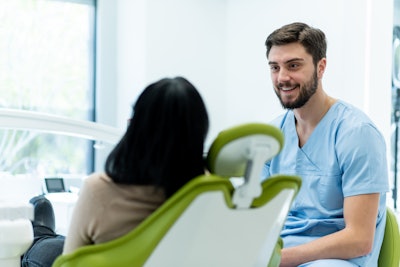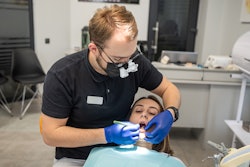
Educating patients about risk-reduction strategies, like promoting HPV vaccination, is crucial for the early detection and prevention of oral squamous cell carcinomas (OSCCs). The report was published in the Journal of Dental Hygiene.
Additionally, regular head and neck examinations can positively affect the health outcomes related to OSCC, oropharyngeal squamous cell carcinomas (OPSCCs), and HPV-related cancers, the authors wrote.
"Oral health care providers have the potential to play a pivotal role in preventing OPSCC by increasing access to HPV vaccines, and providing the education and screening to reduce the incidence and morbidity associated with HPV-OPSCCs,” wrote the authors, led by Lisa Bennett Johnson, DHSc, MPH, RDH, of the Massachusetts College of Pharmacy and Health Sciences (J Dent Hyg, April 2024, Vol. 98:2, pp. 39-46).
Cancer surveillance is crucial in dental hygiene practice due to the persistent high rates of oral and oropharyngeal cancers. The incidence of OSCCs and OPSCCs is increasing by approximately 1% annually, with HPV-associated OPSCC mortality rising by about 2% each year, according to the report.
Similarly, the incidence of HPV-positive cancers, particularly HPV-positive OPSCC, has steadily risen in the U.S. over the past 30 years. Research indicates that when healthcare providers enhance HPV vaccination education and recommend HPV vaccination, there's a significant increase in vaccine uptake, they wrote.
Therefore, establishing a consistent protocol for thorough head and neck examinations is essential along with promptly referring patients to specialists when abnormalities are detected. Referrals to specialists ensure proper diagnostic procedures are performed, such as pharyngoscopy or laryngoscopy, and biopsy, if necessary, they wrote.
"Seeking evidence-based resources from credible organizations is critical to obtaining timely, accurate information about cancer detection and prevention," Johnson et al added.




















